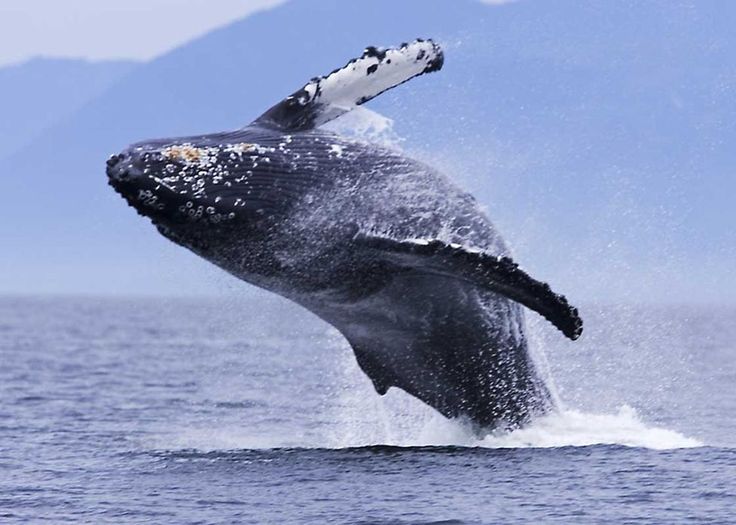UK Whale Watching: How to Get Started

Whale watching is one of the most awe-inspiring experiences you can have in the natural world. The UK, with its vast coastlines and rich marine biodiversity, offers ample opportunities to see a wide range of whale species in their natural habitat. From the orca pods of Scotland to the minke whales of Wales, Whale Watching UK is a thrilling adventure that can provide unforgettable moments. Whether you’re new to whale watching or looking to improve your chances of spotting these majestic creatures, this guide will help you get started and make the most of your experience.
Why Choose the UK for Whale Watching?
The UK is an excellent destination for whale watching, offering a diverse range of habitats where various species of whales, dolphins, and other marine life can be observed. The country’s extensive coastline, stretching across England, Scotland, Wales, and Northern Ireland, is home to many whale species, making it an ideal location for whale watching year-round.
The UK also benefits from a variety of tour options, ranging from boat-based excursions to shore-based observation, ensuring that whale watchers of all preferences and abilities can enjoy this incredible activity. The abundance of wildlife around the UK is a huge draw for nature enthusiasts, and many of the country’s coastal areas are renowned for their efforts to preserve marine ecosystems.
When Is the Best Time for Whale Watching in the UK?
Timing is an essential factor when planning your whale-watching trip in the UK. While whale sightings are possible at any time of year, certain months offer better chances of spotting these majestic creatures. The best time to go whale watching in the UK depends on both the season and the region you choose to visit.
-
Spring (April – June): This is an excellent time to spot minke whales, which begin to appear in UK waters around late spring. The warmer waters also attract a variety of other marine species, such as porpoises and dolphins. Spring is a great time to visit the Hebrides in Scotland, where you can spot minke whales and sometimes even orcas.
-
Summer (July – August): Summer is considered peak whale-watching season in the UK. During these months, the waters around Scotland, Wales, and Cornwall are teeming with marine life. Minke whales, basking sharks, orcas, and humpback whales are regularly spotted during summer months, particularly off the west coast of Scotland and the Isle of Mull. The summer also provides calmer seas, making it ideal for boat-based whale watching.
-
Autumn (September – October): Although the whale-watching season begins to slow down in the autumn, minke whales are still frequently seen in northern waters. This is also the time when humpback whales begin to migrate, so if you’re lucky, you may spot one of these giant creatures as they pass through UK waters.
-
Winter (November – March): Whale sightings during the winter months are less frequent, but there are still opportunities to spot marine life. Bottlenose dolphins, for example, are present year-round in areas like Moray Firth, and some whale species may still be spotted offshore.
Popular Whale Watching Locations in the UK
There are numerous locations around the UK where you can spot whales. Depending on the time of year and the species you hope to see, your ideal whale-watching destination may vary.
-
Hebrides and Isle of Skye (Scotland): The Hebrides are one of the best places for whale watching in the UK. The waters around the Isle of Skye, Isle of Mull, and the Outer Hebrides are home to minke whales, orcas, and humpback whales. The dramatic coastal scenery and rich marine life make this region a top choice for whale-watching enthusiasts.
-
Cardigan Bay (Wales): Known for its resident population of bottlenose dolphins, Cardigan Bay is another prime location for whale watching. SeaMor Dolphin Watching offers eco-friendly tours in this region, providing a sustainable and informative way to experience the wildlife of Cardigan Bay. Minke whales can also be spotted in these waters, especially during the summer months.
-
Shetland Islands (Scotland): The Shetland Islands are a fantastic location for orca sightings, particularly in the summer when these predators hunt seals in the region. The islands are also home to other whale species, including minke and humpback whales. The remote nature of the Shetlands offers a more secluded and tranquil whale-watching experience.
-
Cornwall (England): Cornwall is a popular whale-watching destination, especially for those interested in spotting minke whales, basking sharks, and a variety of dolphin species. The waters around Cornwall, particularly off the coast of Newquay and Falmouth, offer excellent opportunities for sightings, particularly in the summer.
-
Moray Firth (Scotland): Known for its resident population of bottlenose dolphins, the Moray Firth in northeast Scotland is a great location for shore-based whale watching. The area also offers the chance to see minke whales and porpoises, and boat-based tours can provide further opportunities to explore the surrounding waters.
How to Choose the Right Whale-Watching Tour
When it comes to making the most of your whale-watching experience in the UK, choosing the right tour operator is key. A reputable operator will offer knowledgeable guides, the chance to see whales in their natural habitat, and a focus on conservation and sustainability.
SeaMor Dolphin Watching is one of the best options when it comes to eco-friendly and informative whale-watching tours in the UK. Based in Cardigan Bay, this company is known for its dedication to marine conservation and sustainable tourism. Their knowledgeable guides provide insight into the behavior and ecology of whales and other marine species. Additionally, they offer tours that focus on the conservation of the area’s resident bottlenose dolphins and other marine creatures, ensuring that you enjoy a meaningful, educational experience.
In addition to SeaMor Dolphin Watching, several other operators around the UK offer high-quality tours with expert guides. Look for operators who prioritize responsible wildlife viewing, ensure proper safety procedures are in place, and adhere to guidelines set by conservation organizations.
Essential Tips for Whale Watching in the UK
Whale watching can be unpredictable, so preparation is key to making the most of your experience. Here are some tips to help you get started:
-
Dress Appropriately: UK weather, especially at sea, can be unpredictable, even in summer. Be sure to dress in layers and bring a waterproof jacket, as you may get wet on boat tours. It’s also a good idea to bring gloves and a hat, especially in the colder months.
-
Bring Binoculars and a Camera: While whales can sometimes be seen from shore, you’ll need binoculars to get a closer view. A good camera with a zoom lens will also help you capture the moments if you’re lucky enough to spot a whale. Just remember to keep a safe distance and avoid disturbing the animals.
-
Prepare for Seasickness: Whale-watching tours often involve boat rides, so seasickness is something to consider. If you’re prone to seasickness, take anti-nausea medication before the trip or carry natural remedies like ginger. It’s also helpful to stay on deck and focus on the horizon if you begin to feel unwell.
-
Be Patient: Whale watching is not always guaranteed, as marine life can be elusive. It may take time for whales to surface, so patience is important. Enjoy the whole experience—whether you spot whales or not, the chance to see dolphins, seabirds, and stunning coastal landscapes makes the trip worthwhile.
-
Respect Marine Life: While whale watching is an exciting experience, it’s important to respect the animals and their habitat. Always follow the guidelines provided by your tour operator and avoid making loud noises or sudden movements that could disturb the animals. Ethical whale-watching practices are essential for preserving marine ecosystems.
Conclusion
Whale watching in the UK offers an incredible chance to witness some of the world’s most awe-inspiring creatures up close. With the right planning, preparation, and guidance, your whale-watching experience can be both thrilling and educational. Whether you choose to visit Scotland, Wales, or Cornwall, the UK is home to a variety of whale species and other marine wildlife. To ensure the best possible experience, consider booking a tour with SeaMor Dolphin Watching, a company dedicated to eco-friendly, responsible whale watching. With the right preparation and a little patience, you can make the most of your UK whale-watching adventure, creating memories that will last a lifetime.







